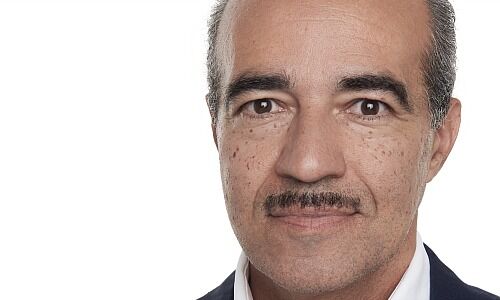At Avaloq, Francisco Fernandez Eyes Up Legacy
More than 20 years after co-founding the banking software company, Francisco Fernandez is preparing to hand over Avaloq to a new owner – again. finews.asia looks at the Swiss maverick’s thirst for legacy.
The 57-year-old computer scientist won a tug-of-war with one of the world’s largest private equity firms. Avaloq’s three-year effort to whip itself into shape is likely to end with both Warburg Pincus as well as Fernandez exiting the firm, as finews.asia reported exclusively.
The move, set to wrap by year-end, leaves few winners. Now chairman of Avaloq, Francisco Fernandez has a host of other projects to keep him busy: a start-up investment venture, an Indian agri-food project, a Formula 1 gaming simulator, and a major real estate development on Zurich’s outskirts. But like most founders, Fernandez can’t let go.
Difficulty Letting Go
Avaloq has defined his career since he graduated from Zurich’s prestigious ETH technical university in 1989: He worked for a Martin Ebner-backed software firm BZ Informatik for two years before investing, and eventually buying it out in 1998 – and Avaloq was born. He is now estimated to be worth as much as 600 million Swiss francs ($659 million), mostly through his 28 percent stake in Avaloq.
Winning and dynamic in person, Fernandez is clearly having the time of his life. He told his alumni paper that he «might still embark on a career in the music business when I’m 65 – perhaps as a producer.» Enormously proud of his two children – 22-year-old Laura, who is a soloist at Moscow’s Stanislavsky Ballett, and six-year-old Mercedes – Fernandez’s love for playing jazz piano is renowned.
Admitted Perfectionist
He still has huge visions for what Avaloq could and should do: he would have preferred to sell to a technology giant like Apple or Google, but the Silicon Valley bid foundered (Fernandez is as close to a dreamer as a computer scientist can get). An admitted perfectionist, Fernandez will leave Avaloq in fresh hands and with a host of challenges, many of them self-owns.
Specifically, it is still heavily reliant on the big projects that tend to be tricky, cumbersome, and require clean-ups, its conversion to selling piecemeal-style is too little and too late, and it still has no presence in the U.S. market. Fernandez and Warburg Pincus, which holds 45 percent, both plan to exit as part of the ongoing sale process.
Delivery Vs. Strategic Vision
Ironically, Ebner, Fernandez’s early backer, is now the biggest shareholder in Temenos, a major Swiss rival to Fernandez. He is also an investor in Additiv, a Zurich-based fintech aiming to disrupt the wealth management software marketplace.
Founded in Geneva just five years before Avaloq, Temenos has managed to deliver where Avaloq hasn't recently. This is largely due to Fernandez, who is more the strategic visionary bubbling with ideas than the hard-charging operative in the C-suite who is able to conclude projects on time and budget.
Lagging Rival Profitability
For example, Temenos CEO Max Chuard snapped up a major deal with Kony last year, in its own SaaS (software as a service) bid, the company is within striking distance of the $1 billion revenue mark – and far more profitable than Avaloq. Temenos padded its profit margin to nearly 38 percent last year, while Avaloq – still heavily reliant on selling entire systems – languishes around 15 percent.
Temenos’ founder, 74-year-old Greek native George Koukis, handed over the firm for someone else to run years ago. The tech firm also went public in a $1 billion initial offering in 2001 (at current stock prices, it is valued at 10.1 billion francs, compared to the $2 billion Avaloq’s investment banks hope to fetch in the current sale).
Legacy With New Owner
The two firms’ varying fortunes can be traced back to Fernandez and his reluctance to let go, even as new CEO Juerg Hunziker took over in 2018. Warburg Pincus is the weightiest counterparty that Fernandez has faced down – though ultimately both he and the private equity giant emerge from the three-year entanglement with egg on their face.
Fernandez ostensibly won a turf war vs. Warburg (to be fair, in three years, the highly professional private equity operation ushered in enormous improvements in Avaloq’s structure, strategy, finances, and planning). It remains to be seen whether he will win the battle to cement his legacy under Avaloq’s new owner.





















